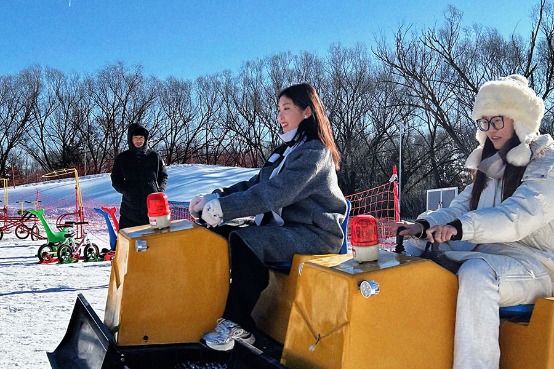Beyond tourism, what matters most is personal


There is no better way for a foreigner to understand China and its people than firsthand experience. I will always be grateful to China Daily and agencies of the central government that deal with foreign experts for providing that opportunity.
The experience of traveling around China has paid off handsomely, both in terms of personal enrichment and in my ability to do my job well as an editor. When news articles mention places in China, I can often visualize them and their people to understand the context of a story.
There was an article, for example, about the people of Guoliang village, built atop a remote cliff in Henan province, who needed to connect with the outside world. They used hand tools to hack an amazing tunnel through solid rock to achieve that goal.
I have seen that tunnel and, having done so, gained a vivid understanding of that stupendous task. And that's just one of many places I've been fortunate enough to visit and sometimes to write about.
There's the wine country of Shandong province and the brisk sea air of Yantai, with its Yangma Island, where imperial horses were raised in ancient times.
Saw that.
There were the camels in the Ningxia Hui autonomous region that carry visitors across the sand dunes.
Rode them.
In Pingyao, an ancient town in Shanxi province, I climbed to the top of the fortress walls and imagined enemies attacking below. I slept in a traditional bed over a fire pit and learned about what might have been the world's first banking system.
In Guiyang, Guizhou province, I walked through Qianling Park and had close-up communion with its rambunctious monkeys. Visiting communities of ethnic Miao, Bouyei and other people, was a dizzying process. The greeters relentlessly offered up their special alcoholic brew, and naturally I didn't want to be rude, so I kept accepting it.
Jilin, Jilin province, featured a giant golden Buddha worthy of bowing to, as well as some of the most gracious residents, hoteliers and restaurateurs I have ever met. I've visited Huizhou's high-rise hotels and white sand beaches, shopped Hong Kong's night markets, appreciated Yan'an historical sites and watched in awe as the near magical noodle-makers in Taiyuan plied their craft. And this list of places barely scratches the surface. There are just too many.
But always I return to Beijing. The list of spectacular places in this city alone is long, impressive and require no introduction-the Great Wall, the Drum and Bell Towers, the Forbidden City, Fragrant Hills, Houhai, Beihai and many more.
But what has stayed with me above all other memories of China was an experience at Beijing's Temple of Heaven that I treasure for its warm authenticity.
It was a balmy summer evening, just at sunset. My wife and I had been shopping at the nearby Pearl Market before walking through the gate of the temple park to enjoy the dusky calm.
As we headed toward the illuminated temple, I heard what sounded like distant voices raised in song. Curious, I went to investigate. The sound grew louder as I approached until I finally came to the source-a group of maybe 30 ordinary people gathered in a loose circle, singing joyfully to the accompaniment of an accordion that someone had brought along.
I didn't know the Chinese lyrics, but I could follow the melody and harmony, drawing on a small amount of vocal training and practice from my distant past. And so I joined in, mouthing the syllables as I heard them and adding my voice to help send the sound to heaven.
The Chinese people standing nearby looked quizzically at the tall foreigner and offered smiles of welcome. It was a moment of unity-what the politicos might call a people-to-people exchange. For me, the group embodied a feeling of love, like a family, as voices blended in a vibrant choir of mutual celebration, respect and, for me, new understanding.
It was over all too soon, and everybody left, but the feeling stayed with me. I couldn't help but wonder: If whole nations could sing together, wouldn't the world be a better place?

































